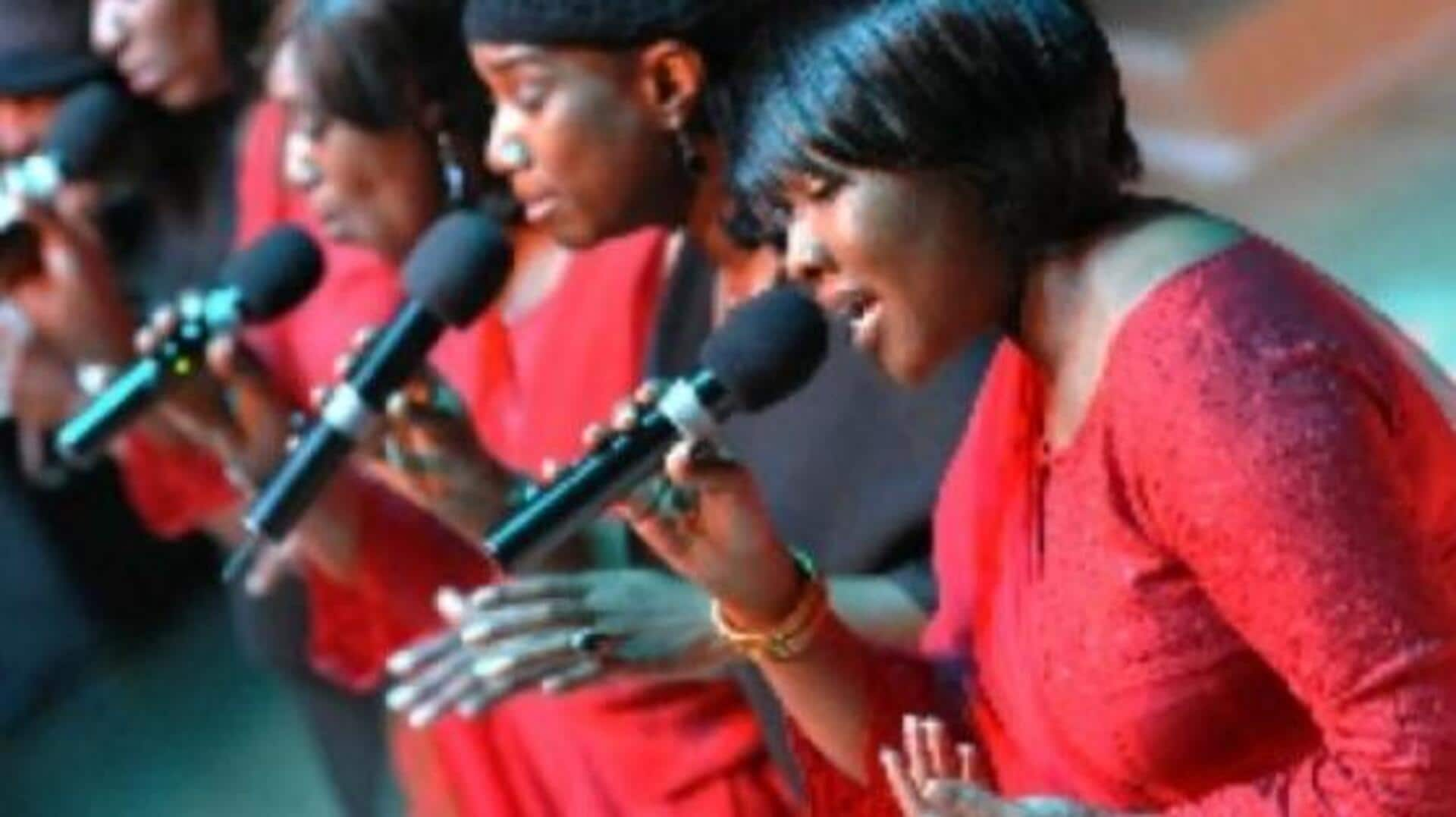
Illuminating stars of African acapella music
What's the story
The soulful rhythm of African acapella music, with its deep harmonies and vibrant cultural roots, resonates with audiences worldwide. This article shines a spotlight on the trailblazing artists and ensembles defining this genre, celebrating their achievements and distinctive sounds. By honoring tradition while pushing boundaries, these artists amplify Africa's voice on the world stage, inviting global listeners to share in the continent's rich musical tapestry.
Trailblazers
Pioneering voices in acapella
South Africa's Ladysmith Black Mambazo has been the beating heart of African acapella music since the 1960s. Their collaboration with Paul Simon on his 1986 album Graceland catapulted them to international stardom, introducing the world to their complex rhythms and harmonies rooted in Zulu tradition. Their influence on global music is undeniable, with five Grammy Awards under their belt and a legacy as Africa's cultural ambassadors.
Modern melodies
Contemporary harmonies
The Kenyan band Sauti Sol has been making waves in the African acapella scene, infusing traditional Kenyan folk melodies with a fresh, modern twist. Since their inception in 2005, they have cultivated a massive fanbase across Africa and beyond. Their unique take on acapella infuses elements of Afro-pop, allowing them to reach a wider audience while remaining authentic to their cultural heritage.
Female voices
Women in acapella
Since 2011, Nobuntu, the all-female a cappella sensation from Zimbabwe, has been shattering expectations and redefining the rules of this traditionally male-dominated genre. Their performances are a mesmerizing fusion of vocal artistry and traditional dance, leaving audiences spellbound. Nobuntu's music is a vibrant tribute to African womanhood, sharing narratives of strength and resilience through their empowering harmonies.
Worldwide recognition
The global stage
African acapella groups are hitting high notes on the world stage! The prestigious Real Group Festival in Sweden regularly invites African ensembles, giving them a global platform to shine. This spotlight has opened doors to collaborations with artists across genres and continents, further infusing the world of music with Africa's vibrant rhythms and harmonies.
Learning through music
Educational impact
More than just entertainment, African acapella music serves as a powerful tool for educating global audiences about African cultures. Workshops held by these groups at schools and festivals provide a unique opportunity to learn about African history, languages, and social issues—all while enjoying the universal language of music. This educational component is key to promoting a deeper understanding and appreciation for Africa's rich cultural diversity among international listeners.